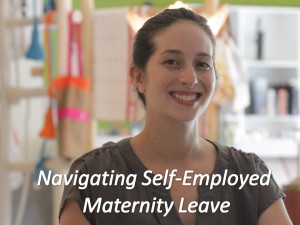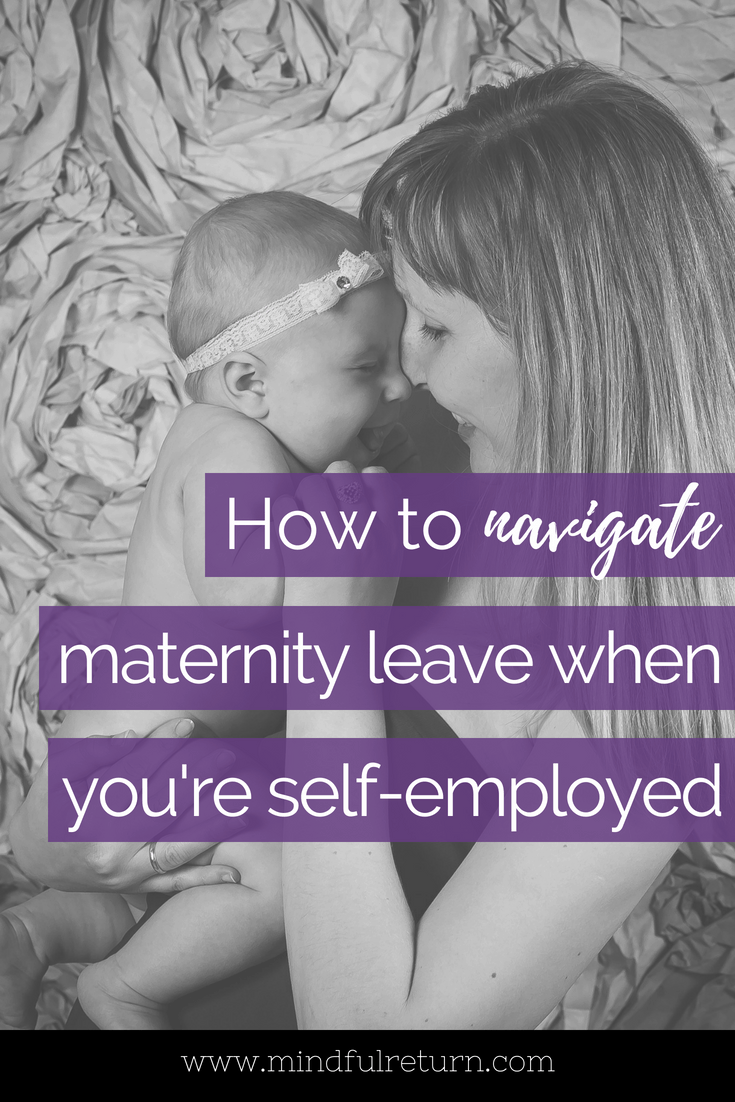 Today, I’m thrilled to feature a guest post by Arianna Taboada, a maternal health consultant. She also happens to be self-employed, and shares great advice here on navigating maternity leave when you work for yourself. (If, you’re the boss at an employer and supervise others in your workplace, check out Returning to Work from Maternity Leave a Better Manager, by the fabulous Stephanie Weeks.)
Today, I’m thrilled to feature a guest post by Arianna Taboada, a maternal health consultant. She also happens to be self-employed, and shares great advice here on navigating maternity leave when you work for yourself. (If, you’re the boss at an employer and supervise others in your workplace, check out Returning to Work from Maternity Leave a Better Manager, by the fabulous Stephanie Weeks.)
Here’s Arianna, in her own words:
Maternity leave can be a complex issue to navigate. As Lori’s work so poignantly addresses, many of us face the challenge of a significant socio-cultural silence about what it means — career-wise — to design a maternity leave plan that honors those precious weeks and months of transitioning into motherhood while balancing our professional identity and growth.
For many, factors such as national and state protections (or lack thereof), workplace policies and culture, and personal finances all weigh heavily on your decision. For the self-employed pregnant woman (hi, that’s me!) some of these factor matter and some don’t.
Let me tell ya, negotiating maternity leave and return to work can be flat out confusing when you don’t have a set structure or workplace expectations. Learning what others did and do was invaluable to me. So, I’m sharing my I’ll my experience and hope to shed light on the unique challenges faced and how I tackled them. I hope my fellow self employed folks find this helpful!
A little bit about me and my work: I’m a public health social worker and make my living as a maternal health research consultant. I also have a small private practice, where I offer one-on-one postpartum planning services. Although I live in Mexico, much of my work is with US-based projects and clients.
To be perfectly honest, I had no idea what my options were for leave. So, being a researcher and all, I began by analyzing the variables at play.
What did I know about my business model and related factors?
- As a self-employed person who lives in Mexico, I do not qualify for the paid leave policies here. All time taken would be unpaid.
- I contribute 50% of my household income. So, I would need to account for this by either saving, billing ahead of time, or asking my husband to pull in some extra work. (Fun fact: he is also self employed!)
- My research contracts typically are for 3-5 years of services. Therefore, although I am not an employee, I would need to negotiate with the projects that have an active contract how long I could take off.
- My private practice varies month-to-month, so this could easily be put on pause and then start up again at my discretion. I also have some very strong professional convictions about leave that came into play as I planned my leave.
What did I know about best practices for postpartum care?
- There is strong empirical evidence of long-term physiological and psychological problems being associated with inadequate rest and recuperation after childbirth. The longer I could take, the better (scientifically speaking).
- There is also strong research evidence that motherhood takes time to transition into and plenty of support. Going at it alone or with limited people to support you is the least expensive option. But it can have costly outcomes down the road. I would need to invest in support.
- I am trained to be a kick-ass advocate and negotiator about maternal health issues at the research and policy level. However, I feared I wouldn’t be able to use this skill set effectively when it came to my personal experience. I needed to advocate for myself!
So I started with my absolutely ideal scenario:
- Slow down my private practice workload during pregnancy
- Start official leave at 38 weeks
- Be completely unavailable (no client calls, emails, or meetings) for 12 weeks postpartum
- Begin to be available (minimal hours) via email only at 13 weeks postpartum (equivalent to 15 weeks of official leave)
- Work my way up gradually back to my regular hours over the course of a month. Resume regular work hours at 20 weeks postpartum
This would mean I had transition time on the front end and the back end, which was the most important thing to me. I wanted time to ease into motherhood and develop my “working mama” identity, instead of throwing myself into it with no time to process.
I pitched the plan to my three biggest clients, and they accepted it without any additional negotiating!!! Having a concrete plan and evidence about why this plan was best for both us made for a strong pitch. I also presented details about how on-going duties would be covered. And I took responsibility for hiring and training graduate students and internal staff to competently cover some of the things I would otherwise be the go-to person for.
Another truthbomb: I am sure not everything will go as planned. The Type A professional in me cringes at the thought of my plan going awry. But the compassionate advocate in me says “it’s ok.”
I’m learning through every step of the process. Learning to navigate the inevitable unknowns of pregnancy and motherhood is part of the journey.
Arianna Taboada is a maternal health consultant who works with women to create a smooth and personalized transition into motherhood. She is deeply committed to providing genuine, on-going, multi-faceted support that fosters physical, mental, social, and emotional health for new mothers when they find themselves faced with the unknown.
Drawing from her own experience, and a decade of work as a maternal health professional, Arianna developed the Postpartum Planning Tool, a free workbook and e-course for anyone looking to map out their postpartum support network and smoothly transition into motherhood. When Arianna is not working directly with clients she is a consultant to research institutions and universities on reproductive health issues. She regularly presents at conferences and her scientific work has been published in the International Journal of Health Equity, Advances in Social Work, and the Journal of Public Health Management and Practice.
To join a community of new mamas who are all returning to work at the same time you are, join the Mindful Return E-Course. The next session starts soon.


